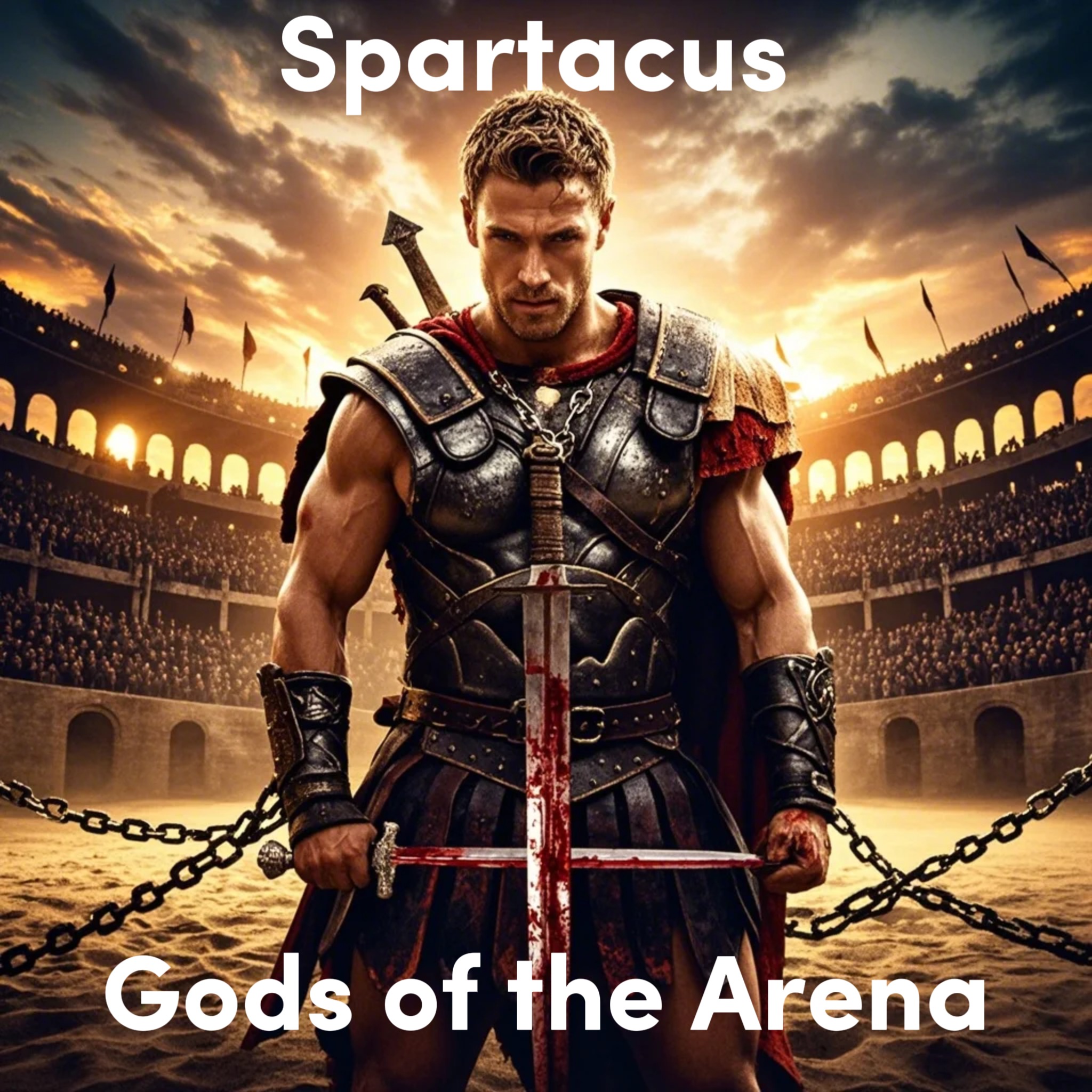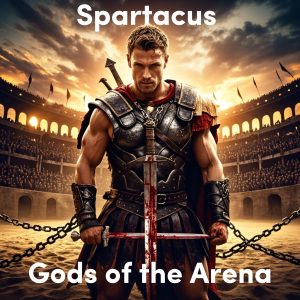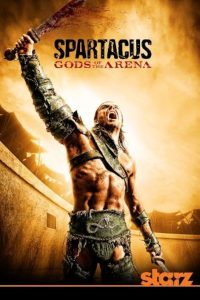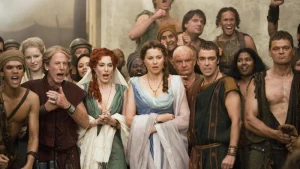Spartacus: Gods of the Arena

“Spartacus: Gods of the Arena” is a 2011 prequel mini-series to Spartacus: Blood and Sand, offering a gritty look into the history of the gladiatorial arena in the city of Capua before the rise of Spartacus. Set in the House of Batiatus, the series delves into the power struggles, ambitions, and betrayals of its inhabitants, focusing particularly on the characters that shaped the gladiator world.
The series introduces viewers to Gannicus (played by Dustin Clare), the first gladiator to win the title of Champion of Capua. He is a skilled fighter known for wielding dual swords, and his rise to power and freedom becomes central to the plot. Gannicus’ story is intertwined with that of Quintus Lentulus Batiatus (John Hannah), who seeks to elevate his family’s name and status by managing a ludus (gladiator training school) in Capua. Batiatus, driven by ambition, sees Gannicus as his ticket to fame, while his wife Lucretia (Lucy Lawless) helps him navigate the treacherous world of gladiatorial combat and the politics of Capua.
The series also explores the rise of Crixus (Manu Bennett), who starts as an undisciplined gladiator but eventually becomes the House’s new champion after Gannicus’ departure. The plot is filled with drama as Batiatus faces pressure from his professional rival Tullius and other characters like Ashur (Nick Tarabay), a Syrian gladiator eager to prove his worth.
With themes of ambition, betrayal, and loyalty, Spartacus: Gods of the Arena is a bloody, emotional prequel that sets the stage for the larger story arc of Spartacus: Blood and Sand. The mini-series also features stunning action sequences, brutal fights, and complex character dynamics that show the gladiators’ evolution from slaves to revered fighters. The show’s dark and adult themes, including violence, sexual content, and manipulation, remain central, creating a raw and engaging historical drama.
The series received praise for its intense performances, particularly from John Hannah and Lucy Lawless, and for its character-driven storytelling that lays the foundation for the later events in Blood and Sand. It also set the stage for the subsequent series, showing the power dynamics and the cost of glory in the brutal world of gladiatorial combat.











